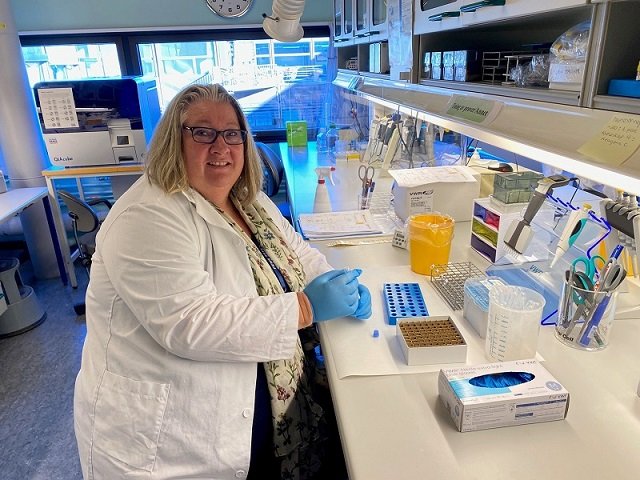
To prevent atherosclerosis, people try to lower high cholesterol levels in adults.
But Professor Kirsten Holvenat at the University of Oslo warns that the prevention procedure in adults is too late when the narrowing of arteries is already too far advanced.
And parents should know the level of their children’s cholesterol.
As Professor Kirsten Holven explains, if we turn our attention to this problem when people are young, we would be able to slow down atherosclerosis significantly and achieve greater positive effects.
In recent years, more and more research has shown that it is the life-long burden of cholesterol that affects the development of atherosclerosis.
In other words, a large amount of this cholesterol builds up during childhood and adolescence.
Cholesterol levels are currently only monitored from adulthood, perhaps first in your forties.
By this time, atherosclerosis is already advanced and it is difficult to reverse it completely
What you eat as a child can therefore have a large effect on whether you will need to take the medication in your fifties in order to combat high cholesterol.
Parents can make healthier choices when it comes to the diet they give to their children while growing up.
Only relatively small changes in the level of cholesterol are needed if started early.
The development of atherosclerosis is driven by the interaction between cholesterol and inflammatory substances.
If the level of cholesterol in your blood is too high, this is usually the result of your lifestyle. However, some people may have hereditary high cholesterol, called hypercholesterolemia.
Atherosclerosis starts during the childhood years and continues throughout life.
Studies have shown that mothers with high levels of cholesterol during pregnancy have children who show more signs of atherosclerosis than children born of mothers with a normal level of cholesterol.
We now have good, well-documented, national dietary recommendations on how to eat to prevent disease.
If you follow these guidelines, it will put your cholesterol on the right track. You can easily improve your level of cholesterol by changing your diet.
For example, you can reduce the amount of saturated fat in your food and replace it with unsaturated fat.
If you care about cholesterol, please read studies about drug that may increase “good” cholesterol in the body, and cholesterol-lowering drugs that may help you survive severe COVID-19.
For more information about cholesterol, please see recent studies about new drug could reduce “bad” cholesterol by 50%, and results show that not all ‘good’ cholesterol is healthy.
Professor Holven’s research project entitled “Dietary prevention of cholesterol induced trained immunity in early atherosclerosis.”
Copyright © 2022 Knowridge Science Report. All rights reserved.


